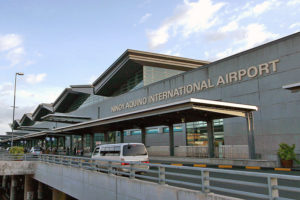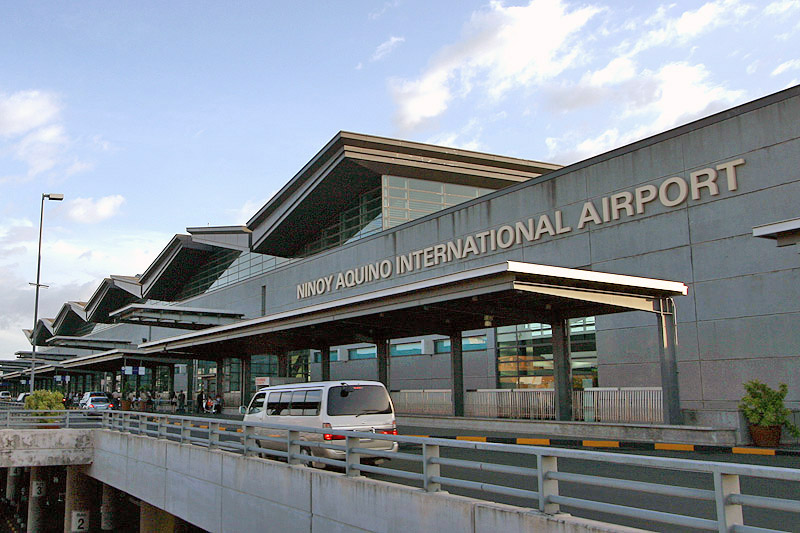
The tandem of Megawide Construction Corp. and India’s GMR Infrastructure Ltd. was granted the original proponent status (OPS) to develop Ninoy Aquino International Airport (NAIA).
This is the same tandem, through GMR-Megawide Cebu Airport Corp, which won in 2014 the 25-year concession to manage and develop Mactan-Cebu International Airport, as well as the contract to construct the Clark International Airport expansion project in 2017.
In a disclosure to the Philippine Stock Exchange, Megawide said the Manila International Airport Authority (MIAA), in a letter dated 15 July 2020, granted the consortium led by Megawide Construction Corporation, with GMR as partner operator, the OPS for the development of the NAIA.
This follows government’s recent termination of negotiations with the NAIA Consortium for its unsolicited proposal to rehabilitate NAIA for 15 years. MIAA also revoked the OPS of NAIA Consortium, initially composed of Aboitiz InfraCapital, Inc., AC Infrastructure Holdings Corp., Alliance Global Group, Inc., Asia’s Emerging Dragon Corp., Filinvest Development Corp., JG Summit Holdings, Inc., and Metro Pacific Investments Corp (MPIC). MPIC later withdrew from the consortium.
The termination of negotiations was recommended after the NAIA Consortium, in a letter sent to the National Economic and Development Authority (NEDA) on July 6, 2020, expressed difficulty obtaining project financing under the terms approved by the Investment Coordination Committee and the NEDA Board, unless such terms are revised according to the consortium’s proposal in a June 5, 2020 letter.
In a press statement on July 7, NAIA Consortium members said they have proposed changes to update the project’s framework “to ensure the bankability of the NAIA Project.”
“The far-reaching and long lasting consequences of the coronavirus pandemic on airline travel, airline operations and airport passenger traffic necessitated a review of the assumptions an plans to ensure that the NAIA Project will be viable in the ‘new normal’,” the Consortium said.
In 2018, the consortium of Megawide and GMR also submitted an unsolicited proposal to decongest and rehabilitate NAIA for an estimated project cost of US$3 billion (about P156 billion).
READ: Megawide-GMR alliance submits P156B proposal to upgrade NAIA
The proposal—with a concession term of 18 years—includes investment in all airside, terminal, and landside improvements, and is divided into three main phases: Phase 1a (year 1-2), Phase 1b (year 3-4), and Phase 1c (year 5-6).
Phase 1a includes improving NAIA’s airside capacity and implementing terminal improvements, while Phase 1b is “taking NAIA to world-class efficiency standards by introducing key performance measures.”
Phase 1c involves building future capacity.
If the proposal is approved, the consortium earlier said that immediately upon takeover it will enhance capacity of the airside infrastructure by constructing full-length parallel taxiways for both runways; constructing additional rapid-exit taxiways for the primary runway; extending the secondary runway; and providing the maximum number of aircraft stands.
GMR-Megawide believes these solutions will increase airfield capacity to 950 to 1,000 aircraft movements a day, a 30% to 35% increase from about 730 daily aircraft movements at present.
For peak hours, the consortium will increase NAIA’s peak-hour aircraft-handling capacity by 50%, or from 40 airplanes to 60.
Within 24 months of taking over operations, the consortium will rehabilitate and expand existing terminals, resulting in a doubling of the space to over 700,000 square meters of terminal area.
Once completed, both airside facilities and terminals will be able to handle a total annual throughput of 72 million passengers.
During the 18-year concession period, the consortium proposes to pay the government annual concession fees, which entails a revenue share with a guaranteed minimum revenue component. In full compliance with the Build-Operate-Transfer Law, the proposal does not entail any subsidy, equity, or guarantee from the government or any concerned entity such as the Department of Transportation.
At the end of concession term, all assets will be handed over to the government absolutely free of cost, the consortium further proposes.





